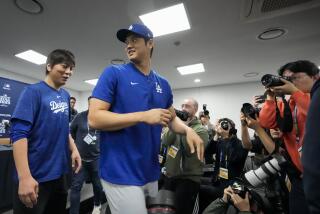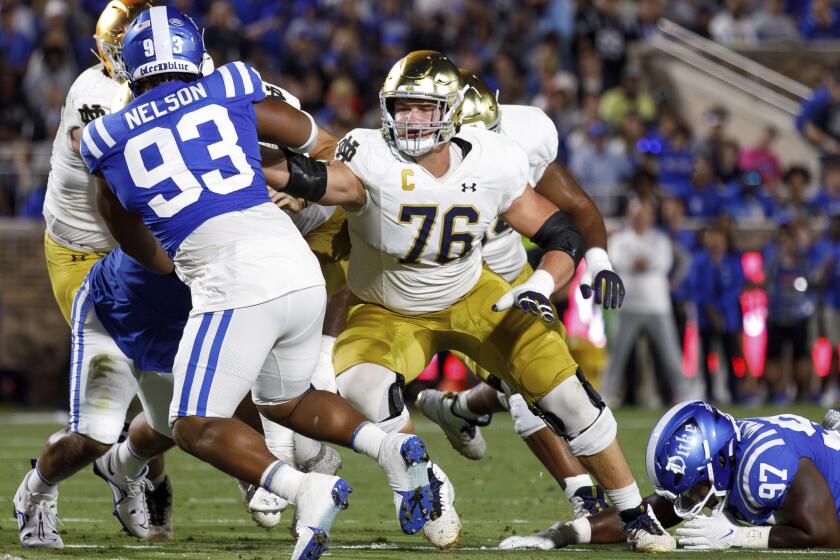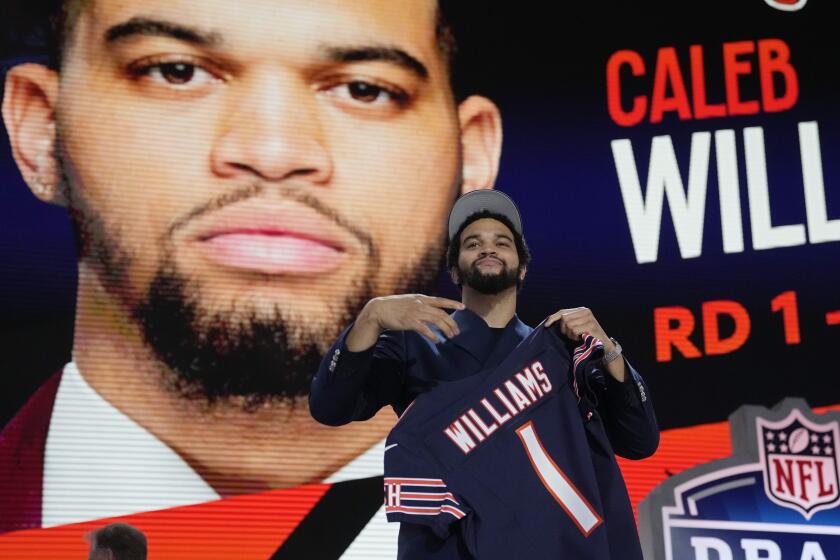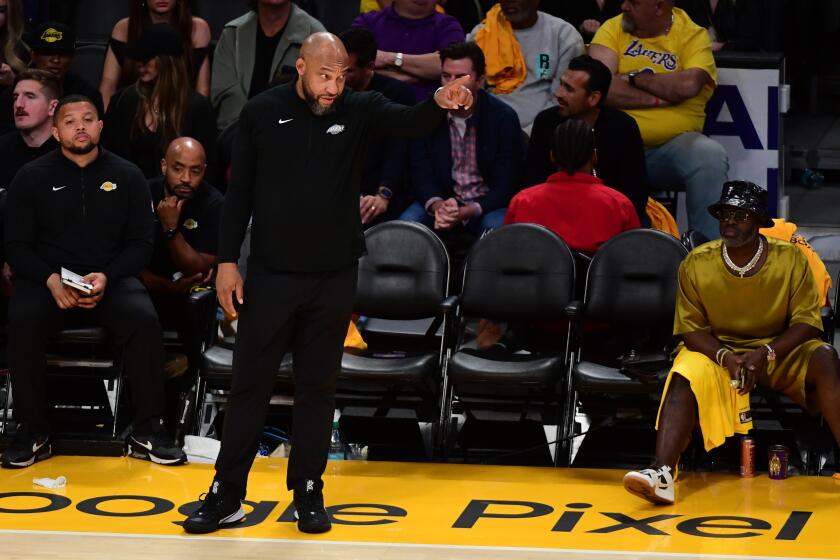Baseball cheaters should get stiffer penalties
If sport is about mythmaking, then clean sport might be the biggest myth of all.
Baseball was reminded of this the hard way Wednesday when Bartolo Colon of the Oakland Athletics was suspended 50 games after testing positive for testosterone. Melky Cabrera of the San Francisco Giants was suspended 50 games last week for the same reason.
Two pennant races, two key players, two suspensions — and you say your sport is clean?
No sport can ever be completely clean, not with competitors eternally in search of the slightest edge. But, as fans debated Wednesday whether the two suspensions might indicate a new wave of drug use in the sport, the commissioner’s office was taken aback.
“We caught a couple of people,” a high-ranking executive said, “and it’s almost like we didn’t.”
Baseball has come a long way. There was no drug testing a decade ago.
The chemists have gotten better. Baseball should too.
Colon, 39, could have been paid millions of dollars by prolonging his career. Cabrera, 28, could have received dozens of millions in free agency this fall. The possibility of a 50-game suspension did not deter either, so perhaps a one-year suspension might be more appropriate for a first offense.
“Fifty games with no pay? I don’t understand why people don’t think that’s harsh,” Angels outfielder Torii Hunter said. “It’s no pay!”
Said Angels pitcher C.J. Wilson: “I think one-third of a season is pretty stiff, and you’re publicly shamed for a long time after that.”
However, Dodgers pitcher Clayton Kershaw and Angels outfielder Mark Trumbo endorsed a tougher sentence.
Said Kershaw: “We should have the harshest penalty possible. If it takes a full season for guys to understand it, whatever it takes. I’m good with where it’s at now. If they want to increase it, I’ve got no problem with that.”
Said Trumbo: “I wouldn’t be opposed to there being a bigger deterrent. Fifty games without pay is pretty stiff, but it’s obviously not enough to scare some guys away from it.”
Neither is random testing that is all too infrequent.
Testosterone injected into the body becomes all but undetectable in about eight days, according to Gary Wadler, a physician and past chairman of the World Anti-Doping Agency’s prohibited list committee.
However, Wadler said, synthetic testosterone — in the forms of creams, gels and patches — can become undetectable within hours. Cabrera and Colon each tested positive for synthetic testosterone, although not from the same product, according to a person familiar with the test results but not authorized to discuss them.
By combining synthetic testosterone with human growth hormone, Wadler said, an athlete can get a similar effect with a lesser amount of testosterone, and thus a lesser chance of getting caught.
Baseball conducts blood tests for HGH once during spring training, not at all during the season. The urine tests that would detect testosterone are administered to each player once in spring training and once on a random date during the season, with players subject to additional random testing.
But the total of additional random tests permitted under baseball’s drug policy is 1,400, or about two per player. A player could be selected for five more tests, or none.
Dodgers catcher A.J. Ellis said he has been tested four times this season, including the one in spring training.
The reward for taking a drug that rapidly clears the body could well outweigh the risk of detection in three or four random tests per season.
“Guys are getting caught,” Kershaw said. “It puts fear in people’s minds. You always have to have that fear in the back of your mind: ‘Tomorrow could be the day I get tested.’ ”
Jason Lezak, who swam for the United States at the London Olympics, threw out the ceremonial first pitch at Dodger Stadium on Wednesday. He said he had been tested “about 10 times” over the previous year and “200 to 300 times” over his 15-year career.
“We can’t get tested every day,” Kershaw said. “No one wants that.”
Kershaw is not alone in that sentiment. But, before his time, the players’ union fought any drug testing.
“It’s hard to say this about other players,” Wilson said, “but I think some players are making some extremely bad decisions. At the end of the day, traditional methods of exercise, lifting weights and proper nutrition are always going to be better than cheating.”
In the heat of the moment, though, cheaters seldom pause for reflection. Better to give them a little more to think about.
twitter.com/BillShaikin
Times staff writer Mike DiGiovanna contributed to this report from Boston.
More to Read
Get our high school sports newsletter
Prep Rally is devoted to the SoCal high school sports experience, bringing you scores, stories and a behind-the-scenes look at what makes prep sports so popular.
You may occasionally receive promotional content from the Los Angeles Times.







